Ultimate Guide to Choosing the Right Hydraulic Power Unit for Your Industrial Needs
In the realm of industrial machinery, the choice of a Hydraulic Power Unit (HPU) is paramount for enhancing operational efficiency and ensuring reliability. According to a recent market report, the global hydraulic equipment market is projected to reach $45 billion by 2026, driven by the increasing demand for advanced hydraulic systems in various sectors, including construction, manufacturing, and automotive. Selecting the right HPU not only impacts performance but also influences energy consumption, which is critical as industries strive for sustainability. With a myriad of options available, from standard models to custom solutions, understanding the specifications and applications of different Hydraulic Power Units is essential for meeting specific industrial needs. This guide aims to navigate through the complexities of selecting the ideal HPU, providing insights backed by industry standards and expert recommendations.

Identifying the Key Applications for Hydraulic Power Units in Industry
When selecting a hydraulic power unit (HPU) for industrial applications, it is crucial to first identify the specific needs of your operations. HPUs are versatile and can power various machinery across different sectors, including manufacturing, construction, and marine industries.
For instance, in manufacturing, HPUs are commonly used to drive hydraulic presses, injection molding machines, and material handling systems. Understanding your machinery requirements and the hydraulic forces necessary for peak performance can significantly impact the efficiency of your processes.
Another key application of hydraulic power units is in construction, where they are essential for operating heavy equipment such as excavators, dump trucks, and cranes. These units provide the necessary pressure and flow to manipulate hydraulic cylinders, enabling tasks like lifting, digging, and transporting materials.
In marine applications, HPUs are vital for steering systems and anchor winches, showcasing their importance in maintaining operational safety and efficiency. By recognizing these applications, businesses can make informed choices when selecting the right HPU that aligns with their industrial objectives.
5 Critical Factors to Consider When Selecting a Hydraulic Power Unit
When selecting the right hydraulic power unit (HPU) for your industrial needs, it is crucial to consider multiple critical factors. Among these, the type of application stands out. Different industries—such as manufacturing, construction, or energy—may require specific hydraulic systems tailored to their operational demands. Understanding the pressure, flow rate, and power requirements specific to your application can significantly impact system performance and efficiency. According to recent market research, the demand for efficient hydraulic solutions continues to grow, particularly in sectors leveraging automation technologies.

Another essential factor is the compatibility and integration of the HPU with existing machinery. As industries increasingly adopt smart technologies, ensuring that hydraulic units can effectively communicate with digital systems is vital. The global market for smart transformers is predicted to expand significantly between 2025 and 2035, showcasing the trend towards smarter, interconnected industrial solutions that enhance overall system integration. This shift indicates that choosing an HPU capable of adapting to evolving technological standards can provide a long-term advantage for any facility. In this dynamics market environment, prioritizing efficiency and adaptability is more important than ever.
Understanding Hydraulic Fluid Types and Their Impact on Performance Efficiency
When selecting a hydraulic power unit (HPU), understanding hydraulic fluid types is crucial for maximizing performance efficiency. Hydraulic fluids can vary widely in terms of viscosity, lubricating properties, and temperature stability, each affecting how systems operate under different conditions. For instance, mineral oil-based fluids are commonly used due to their good lubricating qualities and availability. However, in high-temperature environments, synthetic fluids may be more appropriate, offering enhanced thermal stability and reduced risk of flammability.
Furthermore, the choice of hydraulic fluid can impact the longevity and maintenance of your equipment. Fluids containing additives can enhance performance, providing benefits such as rust prevention and foam suppression. It's important to analyze the specific requirements of your application, as the wrong fluid could lead to inefficiencies, increased wear, or even catastrophic failures. By prioritizing the right fluid type, you not only ensure smoother operation but also significantly extend the lifespan of your hydraulic systems, contributing to lower long-term operational costs.
Analyzing the Cost-Benefit Ratio of Hydraulic Power Units for Industrial Operations
When evaluating hydraulic power units (HPUs) for industrial operations, the cost-benefit ratio serves as a crucial metric in guiding procurement decisions. HPUs are often a significant investment, and understanding their long-term value is essential. By analyzing both upfront costs and operational efficiencies, businesses can better gauge which units will deliver the most bang for their buck. Factors such as energy consumption, maintenance requirements, and redundancy features should be weighed against the initial purchase price.
In addition to direct costs, companies should also consider the productivity gains offered by advanced hydraulic power units. These units can enhance operational speeds and improve system responsiveness, which can lead to greater output and reduced downtime. Furthermore, newer models often come equipped with smart technologies that enable predictive maintenance, ultimately reducing unplanned outages and associated costs. Thus, investing in a higher-quality HPU, despite a higher initial cost, may yield considerable savings and improved performance over time, making it a worthwhile consideration for industrial operations focused on longevity and efficiency.
Evaluating Maintenance and Longevity Expectations for Hydraulic Power Units
When selecting a hydraulic power unit (HPU), understanding maintenance and longevity expectations is crucial for optimizing performance and cost-efficiency. According to a 2020 Hydraulic Institute report, proper maintenance can extend the lifespan of HPUs by up to 30%, significantly reducing long-term operational costs. Regular inspections, fluid maintenance, and timely replacements of wear components are essential practices that contribute to reliability and reduce unexpected downtime.

Furthermore, industry studies suggest that the average lifespan of a well-maintained hydraulic power unit can range between 10 to 15 years, depending on operating conditions and usage frequency. For instance, an HPU used in high-demand environments, such as manufacturing and heavy construction, may necessitate more frequent maintenance checks than those used in lighter applications. Investing in quality components and adhering to a proactive maintenance schedule can lead to not only enhanced performance but also increased safety and reduced environmental risks.
As a result, organizations are encouraged to weigh these factors seriously when selecting an HPU to ensure that they meet their specific industrial demands while optimizing longevity and reliability.
Related Posts
-
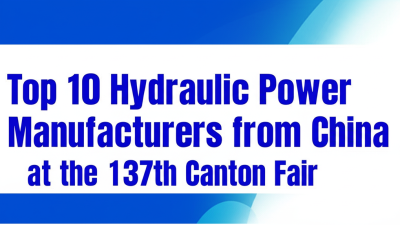
Top 10 Hydraulic Power Manufacturers from China at the 137th Canton Fair
-
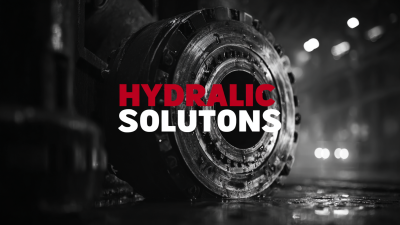
Exploring Innovative Examples of Best Hydraulic Solutions for Your Business Needs
-
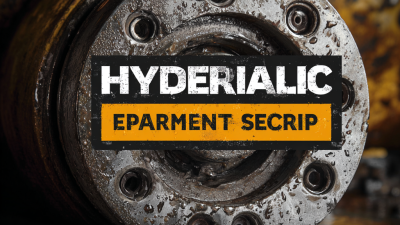
Top Strategies for Selecting the Best Hydraulic Equipment Repair Services Worldwide
-
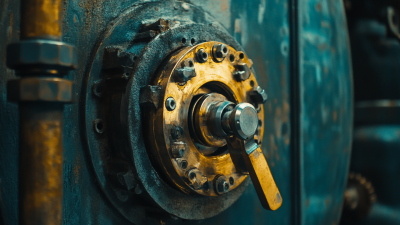
Ultimate Guide to Choosing the Best Cylinder Repair Solutions for Your Needs
-
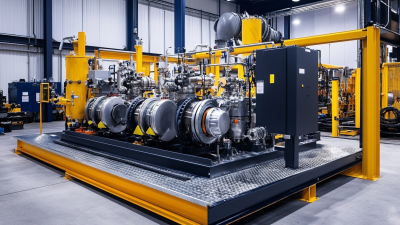
Optimizing Pump Repair Practices to Meet Global Industry Standards
-
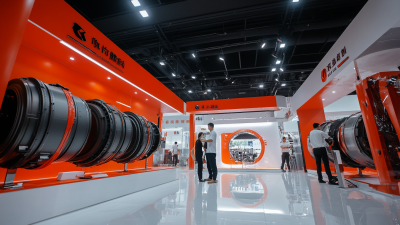
Highlighting Cylinder Repair Innovations at the 137th Canton Fair in Guangzhou

We have over 30 years of experience in designing complete hydraulic systems, repairs and distribution of fluid power equipment and parts.
FOLLOW US ON :
Contact Details
Address:
4020 SE 45th CT.
Ocala, FL 34480
Phone No:
Email:
sales@cunninghamfluidpower.com

